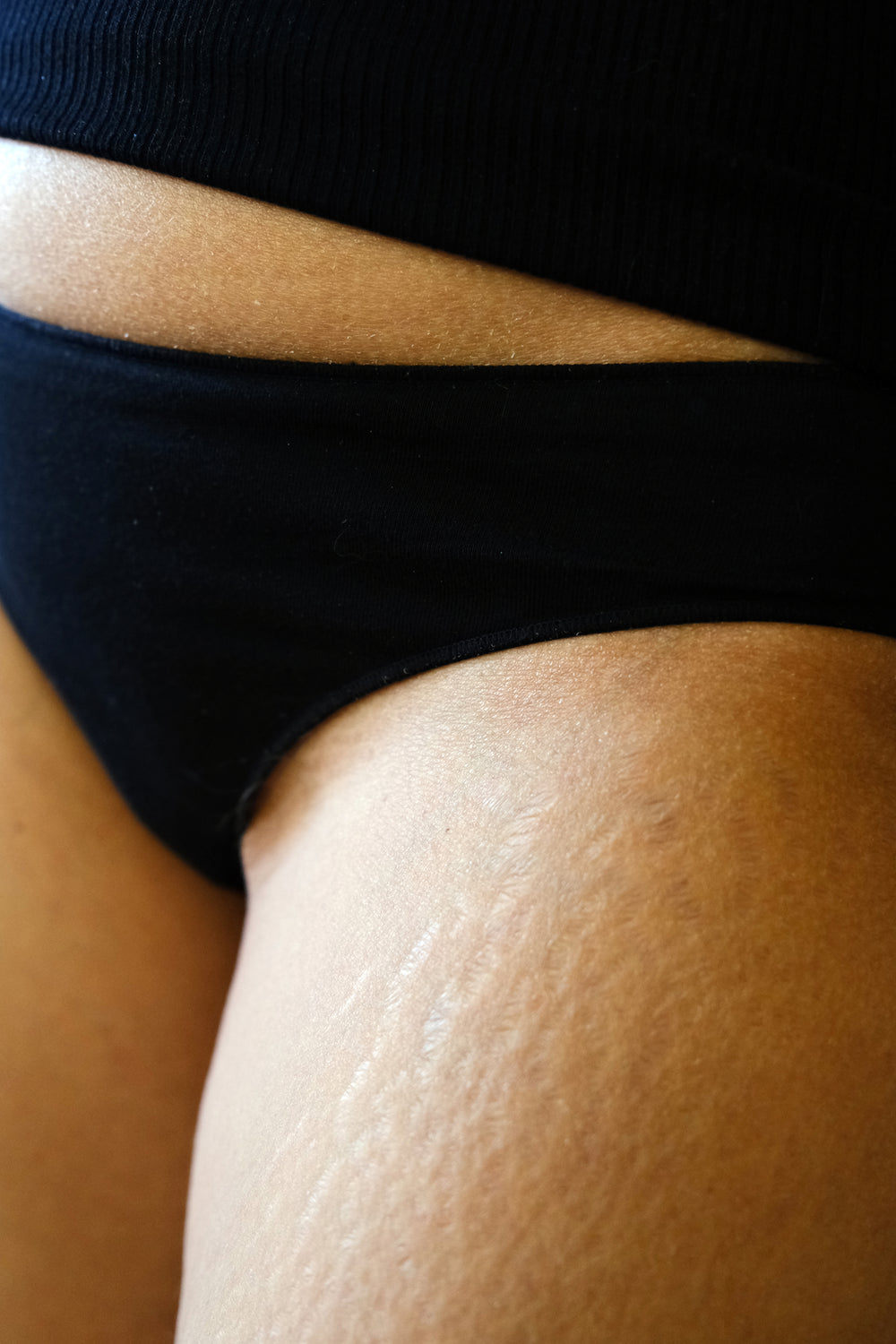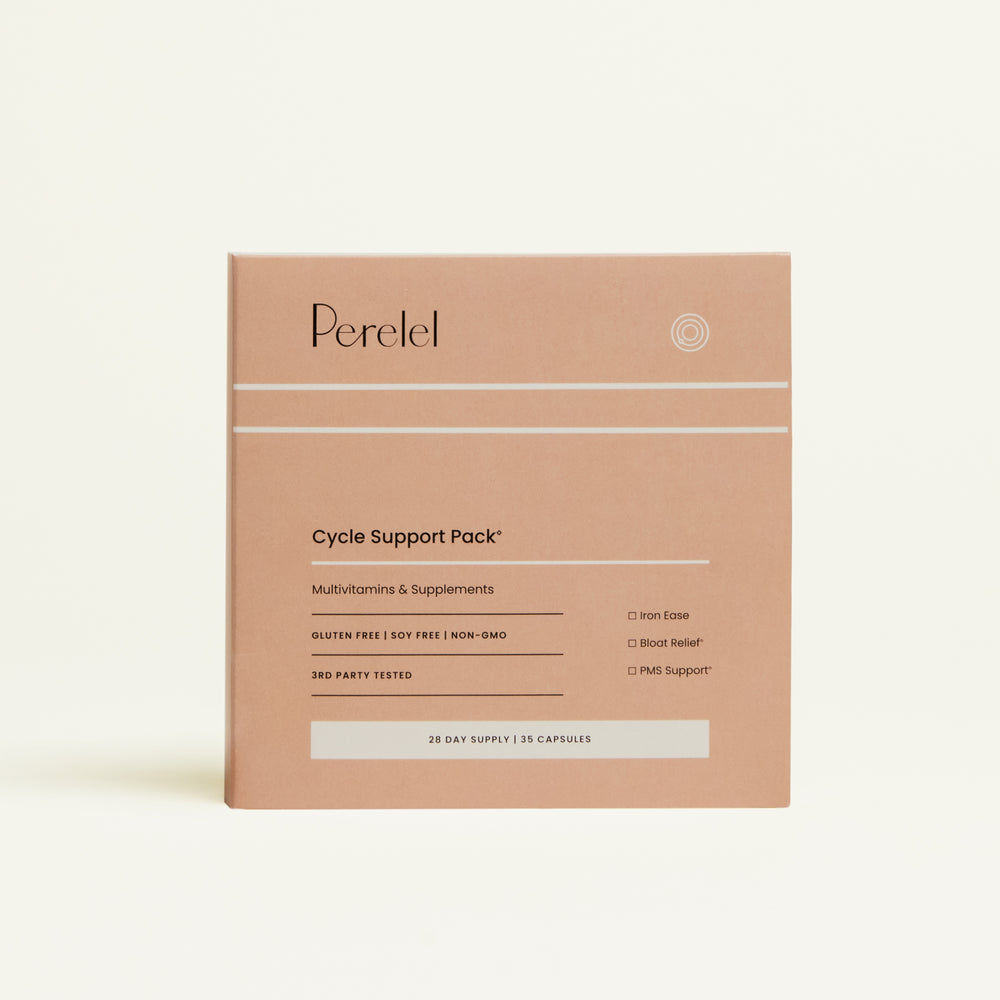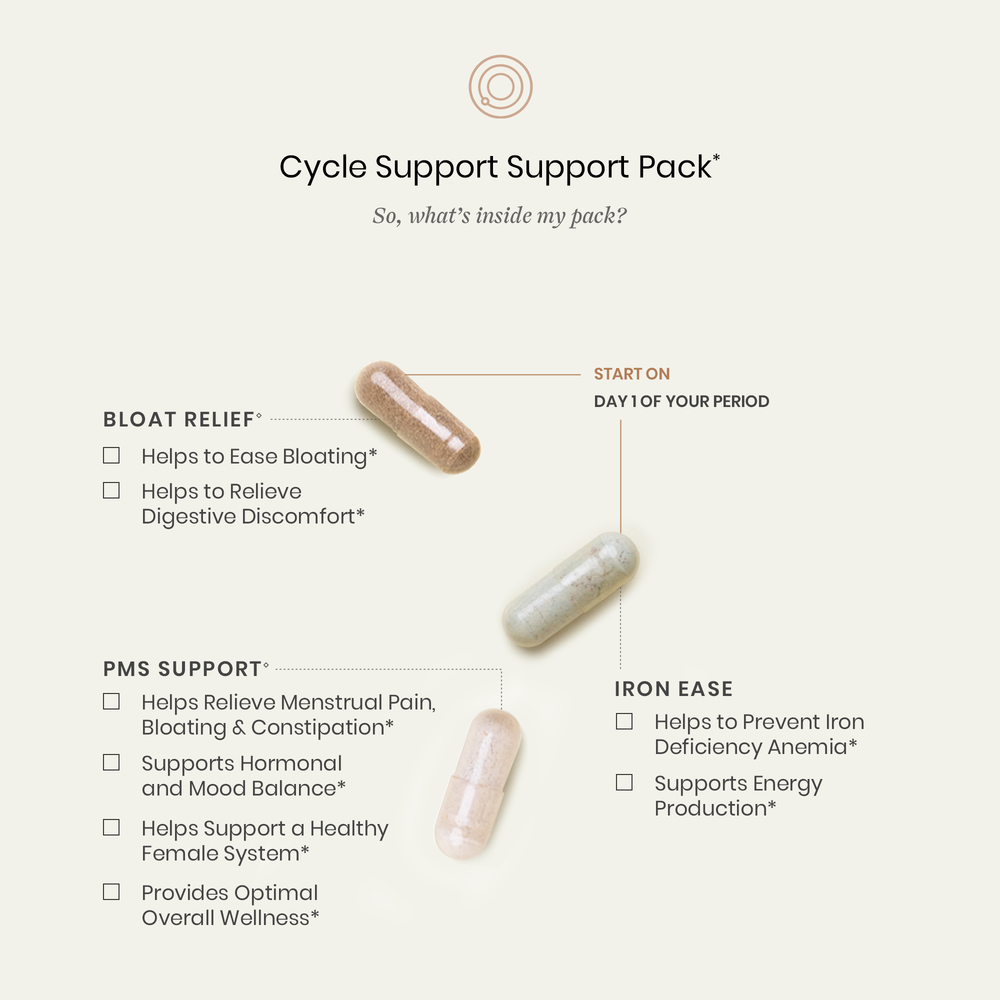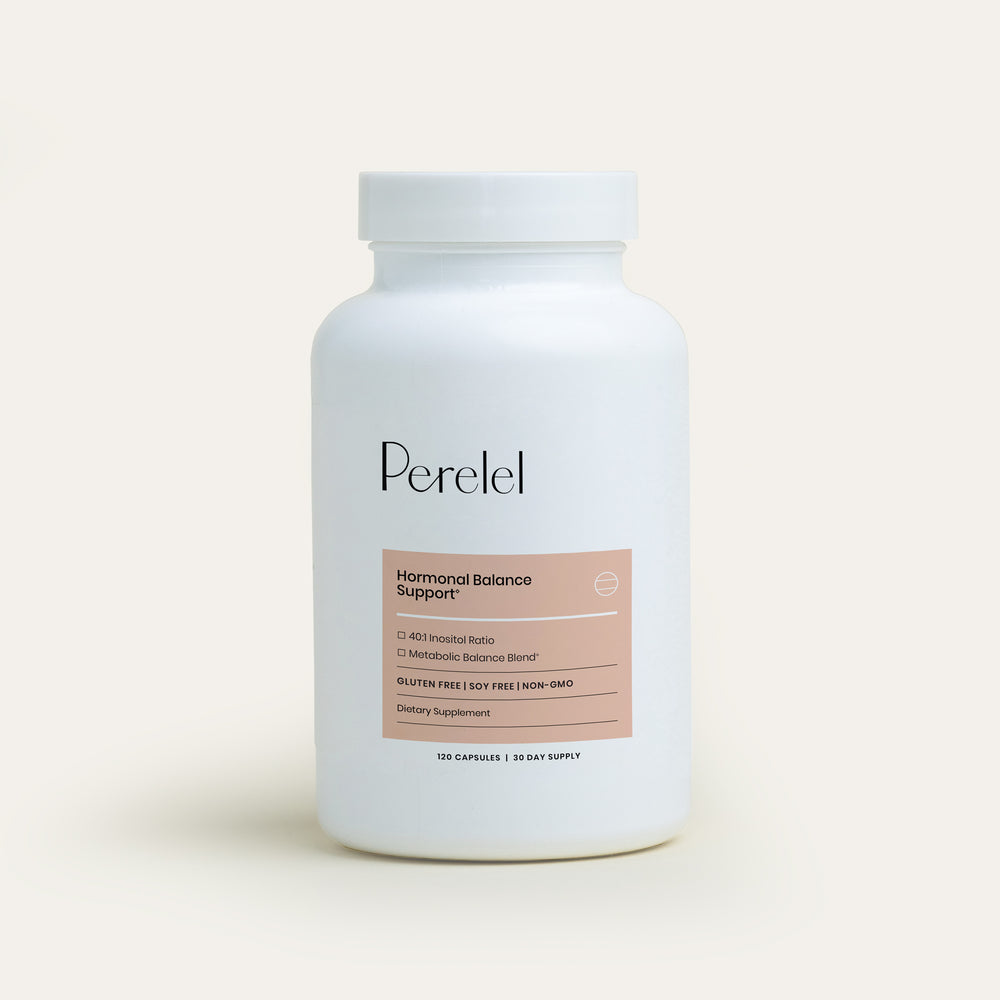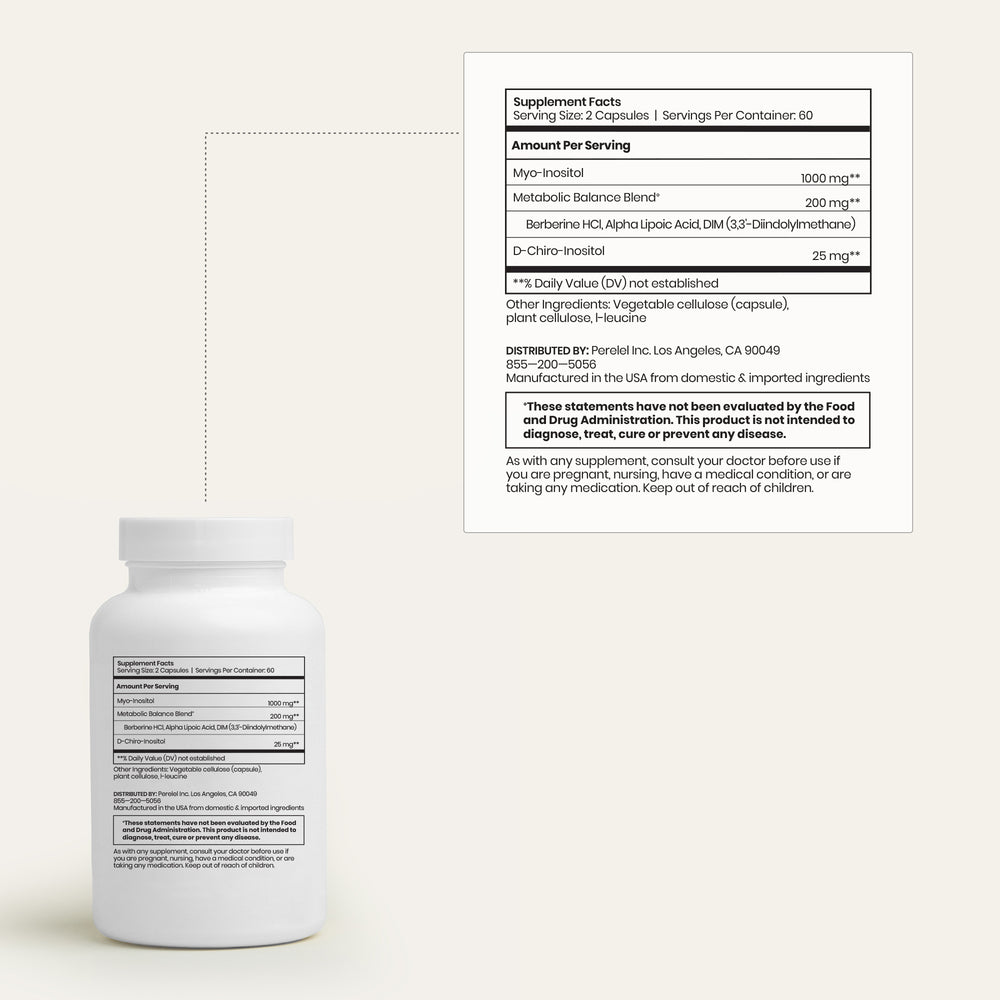You read that headline correctly–it’s estimated that as many as one-third of women struggle with heavy periods. But that doesn’t make heavy periods any more convenient (or less debilitating). As naturopathic doctor Dr. Caitlin O’Connor notes, “the impact of heavy menstrual cycles on quality of life is really underestimated.”
Thankfully, heavy bleeding doesn’t have to be a fact of life—and if it’s severely disrupting your day-to-day life, it might be worth flagging with your doctor. “Sometimes, we need to pull from multiple baskets of intervention to find what the treatment plan should be,” Dr. O’Connor suggests, and there are holistic lifestyle changes and medical interventions to manage and heal heavy periods. Read on for her perspective on heavy periods, plus how to support your body throughout your cycle.
What is considered a “heavy” period?
How heavy is “heavy?” According to Dr. O’Connor, a menstrual flow is considered heavy if you are soaking through a super pad or a tampon more frequently than every one and a half to two hours, for longer than six hours. Menstrual bleeding that consistently lasts longer than seven to ten days is also considered a heavy flow.
At what point should you seek advice from a doctor about a heavy period?
Although heavy menstrual flows have been normalized, Dr. O’Connor suggests that if you have this type of bleeding, you should see your doctor to have iron studies done. Dr. O’Connor also recommends paying attention to the marker for ferritin, where the body stores iron in the body: “Your levels should be at least 30, ideally 70 or above. The hematology guidelines are that anybody with a ferritin level under 30 is iron-deficient, even if they’re not anemic.” That’s because iron deficiency precedes anemia and “it is possible to be iron deficient but not anemic."
Dr. O’Connor also cautions that it is also possible to be iron deficient in a way that’s symptomatic. “You might have hair loss, fatigue, muscle cramps, insomnia, and your blood count will look normal. You won’t be anemic, but you can still be iron deficient. Anemia is the final stage of iron deficiency,” Dr. O’Connor says. “A lot of symptomatic people are being missed if they don’t check a ferritin alongside a complete blood count.”
Is there any demographic of women more likely to experience heavy periods?
According to Dr. O’Connor, the most common cause of a heavy menstrual flow is hormonal dysregulation, which means there’s an increased chance during hormonal transitions. For this reason, heavy periods are common within the first three to five years of starting a menstrual cycle, as well as postpartum, while your cycles are returning and your body is finding balance, and during perimenopause.
People with PCOS or other conditions where cycles may be more spread apart also tend to have heavier menstrual cycles because the uterine lining builds up for longer periods of time.
How can we best support our bodies during a heavy period?
Dr. O’Connor suggests eating iron-rich foods or taking supplemental iron during heavy menstrual flow. Exercise and stress management are also shown to be helpful.
“But, the best thing is to figure out the underlying cause,” Dr. O’Connor suggests. “Ultrasound can be helpful to make sure there’s no fibroids or structural issues that are contributing. If you rule out structural issues, then the question is, what’s causing that imbalance?” Dr. O’Connor explains. “At different life phases, there will be different potential interventions.”
Are there any supplements you recommend for heavy periods?
“The first step is to figure out the , then to mitigate any concerns with iron deficiency, and then finally, to figure out if there are any lifestyle supplements or medications that can help,” Dr. O’Connor says.
“If there’s an issue with inflammation, then fish oil can be helpful for modulating that. If it’s an issue with hormonal imbalance, different botanicals can be helpful,” Dr. O’Connor explains. “If it’s irregular cycles, chasteberry can be helpful in regulating the cycle.
Shop the Article:
What are some possible treatment options for heavy periods?
“There are a lot of different treatment options—like hormonal IUD, uterine ablation, bioidentical progesterone—it’s just about finding the one that fits best for the individual,” Dr. O’Connor explains. “It’s about finding the tool that matches the values and symptom set of the person—and prioritizing quality of life.”
Don’t discount your body’s ability to regulate itself with time. “Cycles sometimes get better postpartum; sometimes, cycles improve in the transition from adolescence to a more mature hormonal cycle.”
Cramps but no period? Here are 11 possible causes.

